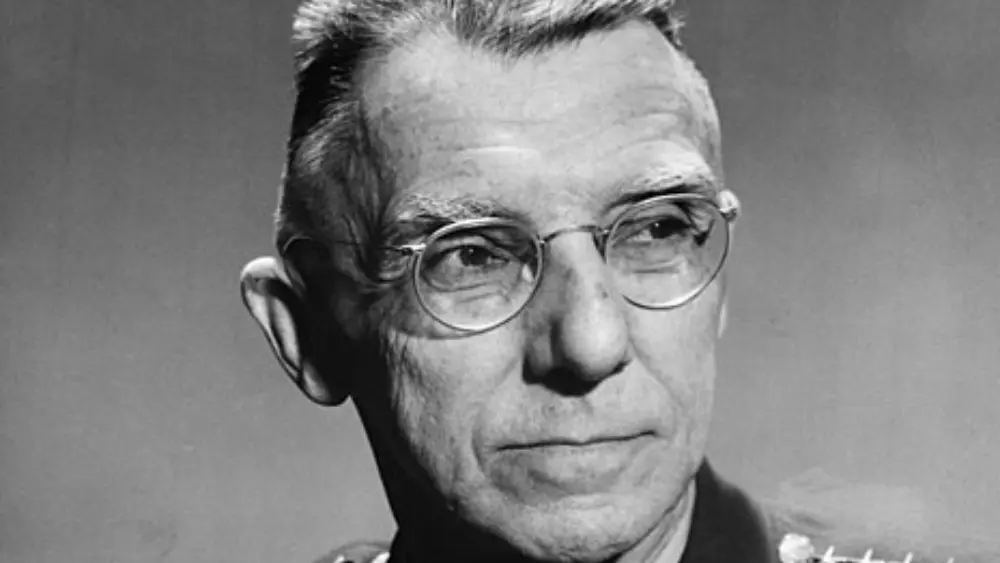Some individuals in military history stand out for their tactical brilliance, distinctive personalities, and unconventional warfare methods. General Joseph Warren “Vinegar Joe” Stilwell is one such person.
Stilwell’s legacy comprises his colorful personality, exceptional leadership, duty, and military achievements. He is often seen as a stern, no-nonsense leader. Let us examine this incredible person’s life and legacy.
Formative Years at West Point
On March 19, 1883, in Palatka, Florida, Joseph Warren Stilwell was born. He grew up in a household where military service was highly valued. He graduated in 1904 from the American Military Academy at West Point, where he studied. Stilwell’s military career started in a time of enormous worldwide change and growing American influence in the international arena.
Stilwell’s career led him to various positions in both local and foreign settings. He worked as a West Point instructor before participating in General John J. Pershing’s Punitive Expedition into Mexico. He then played a significant part in World War I and was awarded the Distinguished Service Medal for his efforts.
He was an early American wartime hero for leading a column out of Burma pursued by the Japanese, but Merrill’s Marauders grew frustrated with his stubborn orders.
Due to Stilwell’s threat to cut off lend-lease supplies to China after Changsha fell, Ambassador Hurley decided to remove him.
Stilwell’s High School Years and Rebellious Streak
After graduating from Yonkers High School, Stilwell’s rebelliousness in postgraduate studies led to a history of disruptive behavior. Before his senior year, Stilwell had excelled in his grades, played football, and ran in track.
Accepted to postgrad studies, Stilwell joined friends for card games and dessert theft at a 1900 senior dance, courtesy of his father. The expulsions and bans for Stilwell’s companions resulted from the most recent incident in which an administrator was assaulted.
Because he graduated, Stilwell was sent to West Point on his father’s advice, instead of Yale University, as originally intended.
Despite missing the deadline to apply for a congressional appointment to the military school, Stilwell managed to get in by approaching U.S. President William McKinley through family ties.
At West Point, Stilwell was skilled in languages such as French, where he ranked top in his class during his second year. This was despite experiencing hazing as a plebe in his first year, which he referred to as “hell.”
Stilwell’s Pursuit of Advanced Military Education
Stilwell taught at West Point after completing the Infantry Advanced Course and Command and General Staff College. He served as the Fourth Corps intelligence officer in World War I and was involved in the St. Mihiel Offensive planning.
As Fort Benning’s commander in Georgia, Stilwell gained the nickname “Vinegar Joe,” a widely recognized reference to him. A subordinate, upset by Stilwell’s harsh criticism, drew a cartoon of him emerging from a vinegar bottle due to his critiques.
Throughout his career, Stilwell held several positions both domestically and abroad. He instructed at West Point, joined Pershing’s Mexico Expedition, and played a vital WWI role, earning the Distinguished Service Medal.
When Stilwell found the caricature, he pinned it on a board, shot it, and then gave copies of the image to his pals. His desk slogan, “Illegitimi non carborundum,” meaning “Don’t let the bastards grind you down,” mirrored his life perspective.
Coordinating Allied Forces in China-Burma-India
However, Stilwell would make his impact during World War II. When Generalissimo Chiang Kai-shek named Stilwell as his Chief of Staff in 1942, he was tasked with coordinating the actions of the Chinese, British, and American forces in the China-Burma-India (CBI) Theater.
Stilwell believed in leading from the front, sometimes putting himself on the frontlines among his men. His plain, frequently brutal leadership style earned him the moniker “Vinegar Joe.” With this strategy, he not only gained the respect of his troops but also fostered loyalty and friendship among them.
The Burma Campaign, when Stilwell led the Allied forces against the Japanese in a taxing and difficult area of operations, was when Stilwell made his most significant accomplishments. His proficiency in navigating the challenging terrain and his emphasis on discipline and training turned the tide against the Japanese soldiers.
Unraveling Joseph Stilwell’s Enduring Legacy
The legacy of Joseph Stilwell extends beyond his military prowess. He stands out as a real leader of men thanks to his open leadership style, readiness to take on difficulties, and commitment to his soldiers. His direct communication approach may have rankled his bosses, but it was well received by the people he was in charge of.
The legacy of Stilwell is intimately entwined with his support of the Chinese people. He worked relentlessly to ensure the Allied troops supported their efforts because he was in awe of their resiliency and persistence in the face of hardship.

Leadership Lessons from Stilwell’s Journey
At the Presidio of San Francisco, Stilwell passed away on October 12, 1946, following surgery for stomach cancer. He had five months left until the army’s required retirement age of 64 and was still on active service.
Joseph “Vinegar Joe” Stilwell’s life and career stand as a testament to leadership founded on integrity, self-control, and dedication. His distinct personality, along with his strategic prowess, made a lasting impression on history.
In hindsight, his life reminds us that true leaders embrace hard work, inspire through deeds, and endure in challenging times.




